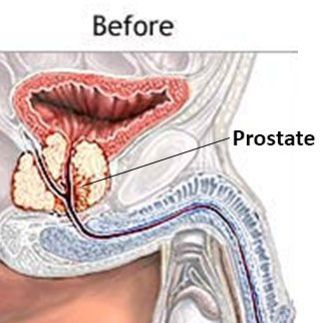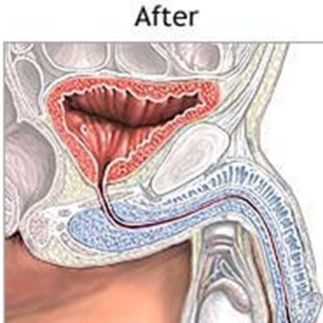Prostate Related Physiotherapy in Colchester, Essex
For those men that require a radical prostatectomy, an operation to remove a cancerous prostate, it is highly recommended that you visit Bodyworks Physiotherapy for pre and postoperative prostate physiotherapy in Colchester, Essex. A large proportion of our patients have been referred to us by their surgeon. Your initial appointment will take place one to two weeks before your surgery and will consist of a full assessment of your bladder, bowel, and pelvic floor muscles. We will also use this time to find out any useful information from your medical history. Our team is highly qualified, skilled, and experienced in all areas of physiotherapy relating to the prostate in Colchester, Essex so do not hesitate to get in touch. We will be more than happy to provide you with further information and to get your initial session booked in.
Robotic Surgery
More and more surgeons are now carrying out radical prostatectomies robotically. We are seeing really good results from this and it is a very exciting advancement in surgical medicine.
Keyhole Surgery
Your surgeon makes five or six small cuts in your abdomen (stomach area) and removes the prostate using a thin, lighted tube with a small camera on the tip and special surgical tools.
Open Surgery
Your surgeon makes a single cut in your stomach area to reach the prostate. This is called retropubic prostatectomy.
All of these types of surgery appear to be just as good as each other at treating prostate cancer.


PHYSIOTHERAPY AND PROSTATE SURGERY
Katrina has been working closely with the Colchester Urologists for the past 25 years. They refer their patients to her for pre-operative physiotherapy assessment and treatment and she reviews them all post-operatively. There may be some bladder issues post-op and this is why the surgeons recommend that you come and see Katrina before and after your surgery.
Common Post-Op Symptoms:
Leaking urine when you cough, sneeze or laugh
Urine loss when moving from sitting to standing, walking or exercising
Leaking urine on the way to the toilet
Going to the toilet frequently
Bladder Urgency
Erectile Dysfunction
Weak stomach muscles
General decrease strength and endurance
Strong pelvic floor muscles will help with these problems. Some men find pelvic floor muscle exercises help with problems getting or keeping an erection after treatment for prostate cancer.
Some men also find they help to improve the quality of their erections. The exercises may also help with bowel problems, such as needing to rush to the toilet, leakage (faecal incontinence), or passing a lot of wind.
Physiotherapy for Prostate Surgery in Colchester, Essex
Pre-Operative Physiotherapy and Prostate Surgery
You will see Katrina one to two weeks before your surgery date. At this appointment she will take a full medical history and any information about your current bladder and bowel habits. A full explanation of your surgery and what to expect afterwards will also be covered. Also at this assessment, with your consent, we will assess your pelvic floor strength and control. This is to make sure that you are doing the exercises correctly as the correct technique it really important.
As well as prior to your operation, it is also a good idea to visit us after you have undergone surgery for physiotherapy for prostate surgery in Colchester, Essex. Following treatment, it is not uncommon to experience various symptoms like leaking urine, more frequent urination, bladder urgency, erectile dysfunction, weakened stomach muscles, and many more. By opting for a follow-up appointment with us to receive prostate physiotherapy in Colchester, Essex, the effects of these symptoms can be significantly reduced. During this session, you should expect to learn a number of exercises to strengthen your pelvic floor, abdominal core, glutes, and general fitness. Get in touch with the team here at Bodyworks Physiotherapy to schedule yours now!
Post-Operative Physiotherapy and Prostate Surgery
You will have a catheter in for 10-14 days after your surgery.
Katrina will liaise with your surgeon as to when the catheter will be removed and we will make an appointment for her to see you the following day or two afterwards.
What to Expect at Your Follow Up:
Reassessment of pelvic floor muscle if required.
Progression of exercises.
Using PFM during functional activities.
Lifestyle advice.
Adjunct therapy if required-real-time ultrasound scanning, biofeedback,
Discussion and advice regarding Erectile Dysfunction.
Checking your abdominal scars.
Exercises:
Pelvic Floor Muscles Exercises.
Abdominal Core Stability Exercises.
Glutes strengthening.
Myofascial release to scar tissue.
General fitness and flexibility training.




